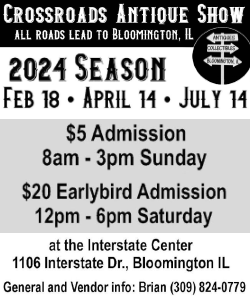Substance Use Prevention Coalition
Addresses Prevention and Harm Reduction
 Send a link to a friend
Send a link to a friend
[February 15, 2024]
 The
Substance Use Prevention Coalition (SUPC) met at Lincoln Memorial
Hospital (LMH) for their monthly collaboration to bring substance use
prevention strategies, resources, and harm reduction to Logan County. The
Substance Use Prevention Coalition (SUPC) met at Lincoln Memorial
Hospital (LMH) for their monthly collaboration to bring substance use
prevention strategies, resources, and harm reduction to Logan County.
The initial announcement of the meeting was that the Community Health
Survey is live and will be available until February 24. The survey is
for all residents of Logan County and those who work in Logan County to
determine Community Health Collaborative priorities for the next three
years. The Community Health survey is required of all nonprofit
hospitals every three years and 2021’s survey elicited the Trailblazers
walking program and matching SNAP benefits at the LMH Market. The survey
takes approximately five minutes to complete and can be accessed here:
https://memorial.health/chna-feedback/
Primary Prevention Updates
Local schools are getting anti-vaping flyers, and prevention specialists
are attending sports events to get parent feedback about information
going out to the community. Specialists delivered information cards
regarding “Care for you Mental Health” at Lincoln Community High School.
They are discussing a similar information card to deliver to Junior High
schools for next year.
The Illinois Youth Survey is underway. All public schools in Logan
County have signed up to take part in the survey. Hartsburg-Emden and
LCHS have already taken the survey. Data will be available in the fall.
Prevention specialists are teaching courses at LJHS this spring.
The online resource directory
www.logancountyresources.org is being updated with descriptions of
businesses. New resource directory cards are available.

Harm Reduction Initiatives
Training in the use of Narcan is now scheduled for Carroll Catholic
School by Kara Davis, Director of Nursing at Logan County Health
Department. Zion Lutheran School is now the only school in Lincoln not
trained in Narcan use.
Davis refills the tables of free Narcan every 2.5 to 3 weeks at the
Logan Health Department.
Bags are available at the Health Department for prescription collection
for disposal. Patrons may pick up the bags, fill them at home and bring
them back to the Health Department (the bags are not for home or
commercial disposal, nor are they for disposing of liquids). The Logan
County Health Department received the grant to initiate a sharps
disposal program. Patrons can pick up a red box to take home, fill it
with sharps, and then return it to the health department for proper
disposal.
The National DEA Drug Take Back Day is at the end of April. Members of
SUPC will coordinate with the Lincoln Police Department to schedule a
corresponding drug take back day locally.
Vending machines at Family Custom Cleaners are kept stocked with Narcan
and testing strips. Cumulative numbers as of January 10, 2024, since the
vending machines’ launch in May of 2023 are 547 Narcan, 505 fentanyl
test strips, and 424 xylazine test strips have been claimed. The vending
machine operates as a harm reduction access point for community
residents.
Recovery-Oriented Systems of Care (ROSC) has updated postcards and
business cards with the current times and places of all recovery
meetings taking place in Logan County. ROSC is planning a screening of
the movie “Generation Found” for the first week in March in Lincoln and
at the Arlee Theater in Mason City. ROSC is working on coordinating
community surveys. An open house is planned at Oxford House for February
25. There is also planning underway for a training for the ROSC
subcommittee group. Anyone who wants to get involved with recovery
events may attend this training. There are also plans for running a
campaign with strategic methods for addressing stigma about substance
use.
The SUPC Environmental Scan located 78 establishments
in Logan County with a liquor license. The scan intends to look at
the establishments in Logan County and their advertising and
marketing. This is not a punitive measure, but to scan the types of
marketing in the businesses. Nadia Klekamp of Chestnut Health
Systems explained that currently youth access is more social than
retail, but gathering retail information will be helpful.
[to top of second column]
|

SUPC members will gather general observations about
marketing, signage, and specials. There is a form to fill out. Not
every establishment will sell alcohol because a liquor license is
required to have gambling. Discussion ensued about how to find a
representative sample of the 78 establishments for the scan. Klekamp
will randomize the list of establishments before the scan proceeds.
A question arose whether compliance checks were still conducted.
Compliance checks still occur for underage sale of cigarettes and
alcohol.
The Fifth Street building, Hope on Fifth, continues to move forward.
The coalition is reconvening on February 29 and meeting in person at
the Fifth Street building. More information about plans and progress
will be available after the meeting.

There was extended discussion regarding the Cannabis
Festival planned for April at the Logan County Fairgrounds. The
event is sponsored by the new dispensary in town which will include
food trucks and vendors from various dispensaries. The event is age
restricted to 21 and over, and security will be provided. It is the
first of its kind in the state of Illinois. ROSC representative
Jeanette Davis expressed interest in setting up a table at the
festival. She reported that cannabis can be used as a method of harm
reduction because it can help people stop using more dangerous
substances or avoid the life-threatening substances that friends or
family may be using. The festival is an opportunity to connect with
people and offer resources, and these kinds of events will continue
to show up. Davis emphasized that choosing to use marijuana is not a
moral deficiency. Medical marijuana seems to have grown in
acceptance for treatment of conditions such as cancer, but still
retains stigma as treatment for anxiety and depression. Education
and conversation are still necessary. Alcohol, with the potential
for dire consequences when used irresponsibly, is socially
acceptable. Some members expressed concern about security and DWI
following the festival similar to events featuring alcohol. On the
subject of cannabis, a new marijuana growing facility is planning to
open downtown.
Klekamp made the point that any substance has a different impact on
a teenage brain that is still developing and has years of continued
development. The conversation around substance use should not be
taboo to have with teens. Klekamp noted that we should be
conscientious about how a cannabis festival normalizes use and that
teens are not of age yet.
The Substance Abuse and Mental Health Services Administration has
released a Harm Reduction Framework for modeling and best practices.
https://www.samhsa.
gov/find-help/harm-reduction/framework

SIU operates the Medically-Assisted Recovery clinic
in Logan County for drug and alcohol use. Research is underway for
similar medical treatment for gambling addiction. If a client wants
to start treatment with medication for alcohol use, it starts with
an intake appointment, followed by a shot at the SIU clinic every 28
days. The shots are ordered from Decatur, and the medication must be
stored in a lockable fridge. No one has utilized this option yet.
Anecdotally, ROSC has noted successful recovery from drugs leading
to development of an addiction to gambling. If it appears there is a
need, a gamblers recovery meeting can be established. In Illinois,
people can register with the Voluntary Self-Exclusion Registry to be
refused entrance to casinos to reduce gambling opportunity at
https://www.igb.illinois.gov/
ProblemGamblers.aspx. There is also an Illinois gambling
quitline: 1-877-YOU-QUIT (1-877-968-7848). Gateway Foundation has
noted an increase in gambling and can offer gambling addiction
treatment.
ROSC’s next online meeting is February 15 at 2:00 p.m.
The next Community Health
Collaborative meeting is March 7 at the Lincoln Park District.
[Stephanie Hall] |